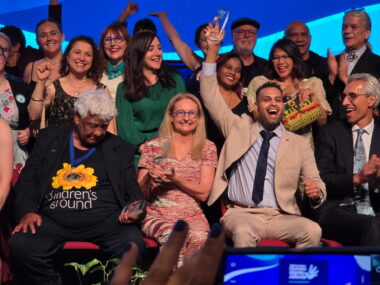New data reveals a devastating 63 per cent surge in preventable deaths among Australians experiencing homelessness, with people dying decades earlier than the general population amid critical shortages in housing and support services.
The Australian Institute of Health and Welfare today released an analysis of a decade of data, showing 12,500 people who had accessed homelessness services died over the ten-year period to 2022, a death rate 1.8 times the general population, with the annual death toll rising from 914 in 2012-13 to 1,489 in 2021-22 – a 63% increase.
"These are deaths of needless poverty and despair and they could have been prevented," said Kate Colvin, CEO of Homelessness Australia. "People sleeping rough are dying at just 46 years of age on average – that's decades younger than the general population. This national crisis demands immediate action."
The research reveals suicide and accidental poisoning were the leading causes of death, accounting for between one-quarter to one-third of all deaths each year. In 2021-22, people who had accessed homelessness services in their final year accounted for one in six accidental poisoning deaths and one in 20 suicides nationwide.
"These deaths are directly connected to the trauma of homelessness. When someone has no safe place to call home, when they're turned away from services because the system is overwhelmed, when they face violence on the streets – the toll on their physical and mental health is devastating."
The crisis is having a severe impact across age groups, with almost half of deaths (46%) among people aged 35-54. The situation is deteriorating fastest for older Australians, with death rates rising by 131% for those aged 55-64 and 119% for those aged 65 and over across the decade.
Young adults are particularly vulnerable, with one in ten women aged 25-34 who died having accessed homelessness services in their final year – the highest proportion among any female age group. For men, the highest proportion was in the 35-44 age group, where one in 14 deaths were of people who had accessed homelessness services.
The data shows rough sleeping poses particular risks – around one-quarter (24%) of those who died had experienced rough sleeping in their final year. People sleeping rough had a median age of death of just 46 years, significantly younger than housed service users who died at a median age of 54.
The surge in deaths comes as homelessness services face unprecedented demand, with more than three million Australians now at risk of homelessness. Services are so overwhelmed that they're forced to close their doors during operating hours and leave urgent calls for help unanswered.
"Our fragmented system is failing at every level – from hospitals discharging people back onto the streets, to specialist health services missing treatable conditions, to the chronic undersupply of emergency and public housing. Every death represents a systemic failure to provide the housing and support that could have saved a life."
Homelessness Australia is calling for urgent government action, including:
- Immediate investment in specialist homelessness services to ensure no one is turned away
- A major expansion of social and affordable housing
- Dedicated funding for specialist homeless healthcare services
- Better coordination between health, housing and homelessness services
- National reporting of homelessness deaths to drive accountability and policy responses
"These deaths are preventable,” Colvin said. “We know what works – housing first approaches, specialist healthcare, and properly resourced support services.”
Contact: Nick Lucchinelli 0422229032
Homelessness crisis claiming more lives at a younger age
Homelessness Australia 2 mins readMedia
More from this category


- Community, Political
- 18/12/2025
- 10:39
CDU alumnus wins national human rights award, pushes for Australia-wide legislation
A Charles Darwin University (CDU) alumnus has received top honours at the Australian Human Rights Commission’s awards gala, using his acceptance speech to push…
- Contains:
- Finance Investment, Political
- 17/12/2025
- 17:13
Low- and middle-income Australians with super should not foot the bill for compensation scheme cost blowout
The Super Members Council (SMC) is urging the Government to rethink its decision to push the bill for compensation scheme cost blowouts onto Australians with super, with data in the Mid-Year Economic and Fiscal Outlook (MYEFO) released today showing super tax receipts at forecast highs. Super tax receipts are expected to increase by $10.9 billion over the forward estimates from 2025-26 compared to the estimates in March’s Budget, a 10% increase on the already-high levels estimated in the last update. Despite that, the Government is asking poorer Australians, already feeling squeezed by cost-of-living pressures, to help plug a hole in…
- Contains:


- Political
- 17/12/2025
- 15:45
How Australian Islam proved it is not a religion of peace
Statement by Family First National Director Lyle Shelton We need to face the fact that Islam in Australia is not a religion of peace.…
- Contains:
Media Outreach made fast, easy, simple.
Feature your press release on Medianet's News Hub every time you distribute with Medianet. Pay per release or save with a subscription.
